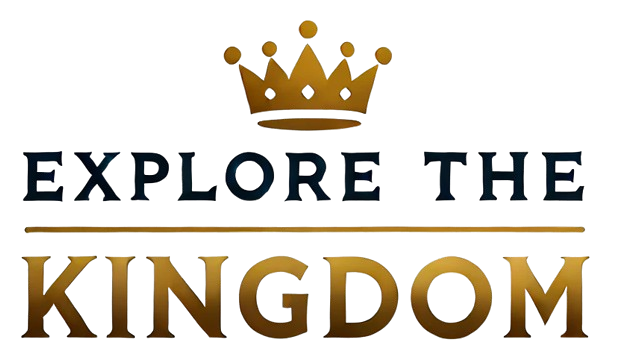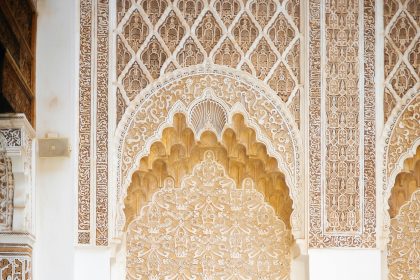The Role of the Emir in Qatar’s Political Landscape
The State of Qatar, a small yet influential nation on the northeastern coast of the Arabian Peninsula, has increasingly become a focal point of political discourse in the Middle East. Central to its governance is the Emir, who serves as the head of state and plays a pivotal role in the country’s political landscape. This article will explore the historical context, powers, and contemporary influence of the Emir in shaping Qatar’s domestic and foreign policies.
Historical Context
Qatar’s political structure has been shaped significantly by its historical context. The Al Thani family has ruled Qatar since the mid-19th century, and the position of the Emir has evolved from a traditional tribal leadership role to a modern constitutional monarchy. The discovery of oil in the 20th century transformed Qatar’s economy and positioned it strategically on the global stage, allowing the Emir to wield substantial domestic and international influence.
The establishment of Qatar as an independent state in 1971 marked a significant transition. At that time, the Emir, Sheikh Khalifa bin Hamad Al Thani, began implementing policies that would modernize the country and enhance its global standing. His successors, particularly Sheikh Hamad bin Khalifa Al Thani, who ruled from 1995 to 2013, expanded the Emir’s role further into international diplomacy and media influence, notably with the establishment of Al Jazeera.
Powers of the Emir
The Emir of Qatar holds a unique position that combines various powers and responsibilities. These can be categorized into legislative, executive, and judicial functions.
1. Legislative Powers
Under the Qatari Constitution, the Emir has the authority to issue laws and decrees. While Qatar has a Shura Council that serves as an advisory body, the Emir retains the ultimate legislative power. This means that the Emir can significantly shape the country’s legal landscape. Although reforms have been initiated to allow for greater public participation in governance, including plans for elections to the Shura Council, the Emir’s prerogative remains strong.
2. Executive Powers
The Emir is the supreme commander of the armed forces and can appoint and dismiss the Prime Minister and other ministers. This allows the Emir to influence key areas of governance, including security, foreign affairs, and economic development. The Emir plays a crucial role in determining Qatar’s foreign policy direction, often acting as a representative at international forums and conferences.
3. Judicial Powers
While Qatar has a judicial system that includes courts and judges, the Emir has the authority to grant pardons and commutations. This power serves as a reminder of the Emir’s overarching influence in the legal system, where he can intervene in high-profile cases or issues of national interest.
The Contemporary Role of the Emir
The contemporary role of the Emir has become increasingly complex, particularly in light of regional dynamics and global challenges. Sheikh Tamim bin Hamad Al Thani, who ascended to the throne in 2013, has navigated a rapidly changing political landscape marked by tensions in the Gulf region, economic diversification efforts, and the impact of global events.
1. Foreign Policy and Diplomacy
One of the Emir’s most significant roles is in foreign diplomacy. Sheikh Tamim has maintained an independent foreign policy that is sometimes at odds with other Gulf Cooperation Council (GCC) members, particularly Saudi Arabia and the United Arab Emirates. Qatar’s support for various political groups in the Arab Spring and its hosting of contentious figures have led to strained relations with its neighbors.
The 2017 diplomatic crisis, where Saudi Arabia, the UAE, Bahrain, and Egypt imposed a blockade on Qatar, exemplified the complexities of regional politics. The Emir’s response was characterized by resilience and an emphasis on national sovereignty. During the blockade, Qatar strengthened ties with Turkey, Iran, and other nations, showcasing the Emir’s role as a strategic leader capable of navigating isolation.
2. Economic Development
Sheikh Tamim has also prioritized economic diversification as part of Qatar National Vision 2030. The Emir has championed initiatives that reduce the country’s dependence on hydrocarbon revenues and promote education, healthcare, and tourism. This vision aims to position Qatar as a knowledge-based economy, and the Emir’s influence is crucial in mobilizing resources and fostering public-private partnerships.
### 3. Social Reforms
In recent years, the Emir has been associated with social reforms to modernize Qatari society. These reforms include improvements in labor laws, increased rights for expatriates, and promotion of cultural initiatives. The Emir’s support for these changes reflects a broader recognition of the need to adapt to global standards while maintaining Qatar’s unique cultural identity.
4. Hosting Global Events
Under the Emir’s leadership, Qatar has positioned itself as a host for significant global events, including the FIFA World Cup 2022. This endeavor has elevated Qatar’s international profile and required substantial investment in infrastructure and services. The Emir’s ability to mobilize resources and showcase Qatar globally is a testament to his leadership capabilities.
Challenges and Criticisms
Despite the Emir’s substantial influence, challenges and criticisms have emerged in recent years. Human rights issues, particularly concerning labor conditions for migrant workers, have garnered international attention and criticism. While the Emir has taken steps to address these concerns, the pace of reform has been scrutinized.
The political landscape remains complex, with ongoing tensions among GCC countries. The Emir’s diplomatic balancing act is continually tested as he navigates the interests of Qatar, regional allies, and global powers.
Conclusion
The Emir of Qatar plays a crucial role in shaping the nation’s political landscape through legislative, executive, and judicial powers. Sheikh Tamim bin Hamad Al Thani’s leadership reflects a commitment to modernizing Qatar while maintaining its sovereignty and cultural identity. As the nation adapts to regional and global changes, the Emir’s influence will undoubtedly remain a central aspect of Qatar’s political narrative. In an era of uncertainty and change, the Emir’s ability to navigate these challenges will be critical in directing Qatar’s future trajectory.


